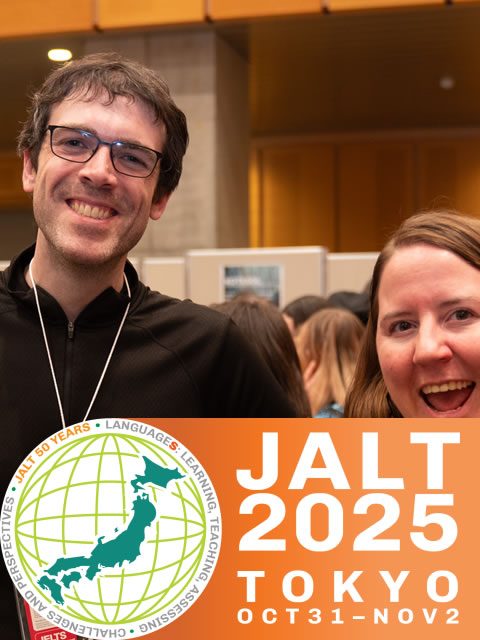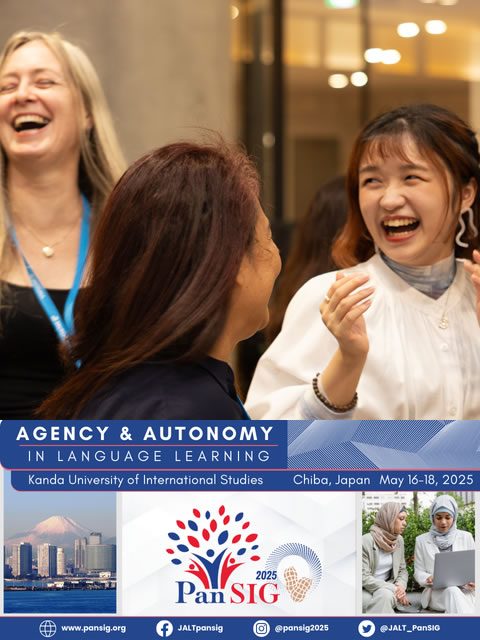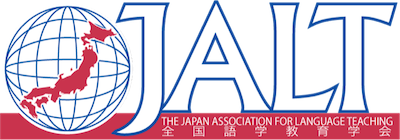Your cart is currently empty!
JALT2017 Plenary Speakers
•
Barbara Hoskins Sakamoto
Gabriel Diaz Maggioli
Hugh Starkey
Nick Saville
Barbara Hoskins Sakamoto
Sponsored by JALT
Mandates, Myths, and the Bananarama Principle
Sunday Nov 19, 10:25 AM – 11:25 AM
Each day, teachers around the world work to create the next generation of English speakers. Government and business see the need for English speakers to compete. Parents want to give their children an edge in a world where English ability equals academic and economic opportunities. Teachers do their best to provide excellent education, sometimes in spite of inadequate professional support and training, in the face of mandates based more on wishful thinking than research, and parents who are just familiar enough with learning myths to second guess their teaching. English has become a priority foreign language for the world’s children. In some countries it is compulsory, in others it is optional. However, in all countries, children are starting to learn English as a foreign language at younger and younger ages. We’ll look at research, and peek into classrooms around the world to see how English education reform has been implemented, what actually makes a difference in learning outcomes, and what doesn’t. Finally, we’ll look at why successful foreign language education for children should matter to all teachers.
Workshop: Learning Activities from Global Classrooms
Saturday Nov 18, 4:20 PM – 5:20 PM
In this hands-on workshop, we’ll look at successful language classrooms in order to establish a broad set of best practices for English language learning, and then introduce activities from around the world that exemplify these standards. We can use these standards to help us evaluate what we’re already doing in our own classrooms, and to implement changes that will make our own lessons more effective. Participants will have a chance to see what English teachers around the world are doing in their own classrooms. While English teachers around the world share many of the same lesson planning goals, they often work toward these goals using classroom management strategies, learning activities, and games that are unfamiliar to us. In this workshop, you’ll have a chance to try out some of the activities shared by teachers who live far from Japan, and discover some new ideas to take back to your own classrooms.
Barbara Hoskins Sakamoto holds a US English teaching license and an MATESOL, and has taught Language Arts, ESL, and EFL. Barbara is co-author of one of the world’s best-selling textbook series for children learning English, Let’s Go (Oxford University Press), and Course Director for International Teacher Development Institute (iTDi.pro).
Gabriel Diaz Maggioli
Sponsored by Soka University and JALT
Shaping the Way We Grow: Teachers and Development
Saturday Nov 18, 9:45 AM – 10:45 AM
Teachers all over the world are constantly struggling with finding a balance between their professional demands and their life demands. In this plenary, I will outline ways in which teachers can pursue their own professional development while not affecting their personal life, We will begin by exploring the state of the art in professional development, after which we will look at models and approaches to teacher learning that capitalize on individual expertise. Following this, we will explore a series of activities or tools for professional development that teachers can apply while on the job. The nature of these activities/tools makes them ideal for teachers working in complex circumstances, and their student-geared intentions make them an ideal tool not just for teacher growth, but also for the enhancement of students’ learning. Vignettes showcasing the application of some of the activities/tools will be shared so that the audience can successfully translate learning to their individual circumstances.
Workshop: Old Hat, New Cap! Design Thinking and Methodology
Sunday Nov 19, 5:40 PM – 6:40 PM
Design thinking offers teachers a novel way of approaching their job. Just like a designer attempts solutions for clients’ needs, a teacher attempts solutions to learning quandaries. In this workshop, we will explore design thinking by engaging in a series of tasks around the use of cloze texts. We will explore how to make a “tried, tested and traditional” classroom procedure into a Learning 3.0 tool. We will then collectively apply the design thinking process to the reformulation of other “tried, tested and traditional” teaching tools. By the end of the workshop, participants will have acquired a set of principles and tools for the design of learning activities that they can readily incorporate into their own teaching.
Gabriel Diaz Maggioli (National Teacher Education University, Uruguay) is a teacher who applies the lessons learned in the classroom to his roles as educational consultant, teacher educator, researcher and author. He lives in Montevideo, Uruguay but is fortunate to be able to share his theories-in-practice with colleagues in the Americas, Europe, the Middle East and East Asia.
Hugh Starkey
Sponsored by JALT
Cosmopolitan Citizenship and Language Learning
Saturday Nov 18, 2:25 PM – 3:25 PM
Language teachers and citizenship educators have much to learn from each other. They may aspire to promote the universal humanist values and norms that define cosmopolitanism. Education for citizenship and so-called ‘foreign’ language teaching are being transformed in the context of globalization. Both have their roots in the state formation and nation building projects of the 19th century. Citizenship education has traditionally focused on integrating citizens into a national polity. Foreign languages are understood in opposition to a national language, in fact reinforcing its prestige. Globalisation, migration and multilingualism have profoundly challenged the salience of a single national identity. Flexible and multiple identities are the norm. Both citizenship and language educators may be conceptually constrained by attention to the international. This encourages a diplomatic perspective where speakers are ascribed a single national identity. Education for cosmopolitan citizenship shifts the focus to intercultural interactions between people in their complexity.
Workshop: Intercultural Interactions in the Language Classroom
Sunday Nov 19, 2:10 PM – 3:10 PM
Drawing on guidance developed for the Council of Europe, this workshop invites participants to conceptualise the language classroom as a space of critical intercultural encounter. Starting from the understanding that all learners of whatever age are citizens with an entitlement to ask questions and share opinions, participants will be invited to consider how students’ own knowledge and experience can be a resource for language learning. Whereas communicative language teaching is based on constructing and bridging information gaps, intercultural language teaching focuses on opinion gaps. Whereas so-called native speakers may have an advantage as authorities on certain aspects of languages, there is no such equivalent for cultures which are constantly changing and intermingling. Students and teachers are on equal terms when it comes to experiences of local, national or international cultures. Everyone is able to bring their own knowledge and experience to bear on questions of opinion and all can learn from each other in a way that is profoundly democratic. Well-chosen themes and issues can generate interest and excitement which is key for motivation. This may require the negotiation of procedural values for discussions in the classroom and this can be in itself a valuable source of learning.
Hugh Starkey is Professor of Citizenship Education at UCL Institute of Education, London. He researches and has published widely on language teaching, intercultural education and education for human rights and social justice in a globalising world. He has acted as consultant to Council of Europe, UNESCO, European Commission and the British Council.
Nick Saville
Sponsored by Cambridge University Press and Cambridge English Language Assessment
Data & Devices: the 4th Industrial Revolution & Learning
Sunday Nov 19, 3:20 PM – 4:20 PM
The Fourth Industrial Revolution (Schwab, 2016) is all about data and devices and underpinning the concept is the integration of cyber and physical systems. Like all innovations, it is widely acknowledged that this latest revolution will lead to the disruption of existing ways of working. Devices of all kinds are already connected to create the Internet of Things, and being packed with sensors, lightning fast processing power and massive storage capacity, they are able to record and regulate their performance. The technology employs machine learning and artificial intelligence (AI) to analyse and act upon the data, so that humans working with the machines, can in turn, improve their own effectiveness. In many fields, this is now enabling smarter manufacturing processes. So, what about the influence on education, and language-learning systems in particular? I will argue that we need to embrace this revolution and to build it into our thinking. I will show how the use of learners’ performance data, artificial intelligence and formative feedback to learners can create a more effective language-learning ecology. Using examples of digital technology based on AI, I will demonstrate how we can take learning activities beyond the traditional classroom in order to give teachers more time to teach and learners more time to learn. This technology will enable teachers to create authentic, communicative tasks and to collect, record and analyse data on their students’ performance. This will help them to provide more meaningful and motivating feedback, adjust learning goals accordingly and scaffold the learners’ development in a more personalised way.
Workshop: LOA: Understanding & Using Assessment to Support Learning
Saturday Nov 18, 12:40 PM – 1:40 PM
Passing examinations is widely thought of as the gateway to opportunity, for example, in going up to the next level at school, winning a place at university, or getting a better job. While this can be motivating for learners, an overemphasis on achieving required test scores means that the value of assessment in promoting better learning can be forgotten and sometimes examinations exert a negative washback effect on classroom teaching. This presentation introduces the concept of a Learning Oriented Assessment (LOA) from an assessment specialist’s perspective. LOA is a systemic approach that puts learning at the heart of all assessments contexts and uses formal and informal types of assessment to promote better learning – both inside and outside the classroom. This approach:
helps teachers and learners to plan learning more effectively
measures progress more accurately
identifies areas for improvement on an individual level
delivers measurable improvements in learning over time
provides an internationally recognised certification that prioritises communicative ability
In this talk you will also learn about the role that technology plays in LOA and how automated assessment can help learners improve their writing skills, as demonstrated by Write & Improve. Write & Improve is a completely free service for learners of English that provides feedback in a few seconds so that they keep learning continuously. Every time learners make changes to their writing and sends it back, they receive targeted feedback to help them improve their writing and make progress towards the next CEFR level. Write & Improve can also be used effectively in preparation for high stakes examinations such as IELTS or the Cambridge English exams.
Nick Saville is Director of Research & Thought Leadership in Cambridge Assessment, English (University of Cambridge) and Secretary-General of ALTE. He has a PhD in Language Assessment, and before moving to Cambridge he worked in Italy and in Tokyo. He is co-author of the volume Learning Oriented Assessment (CUP, 2016).

JALT2025 International Conference
2025年10月31日(金)〜2025年11月02日(日) 東京都渋谷 国立オリンピック記念青少年総合センター Friday, October 31 – Sunday, November 02, 2025 • National Olympics Youth Memorial Center, Tokyo, Japan

PanSIG Conference
PanSIG 2025 will be held May 16-18 in Chiba. PanSIG is an annual conference organized by JALT’s Special Interest Groups (SIGs).
